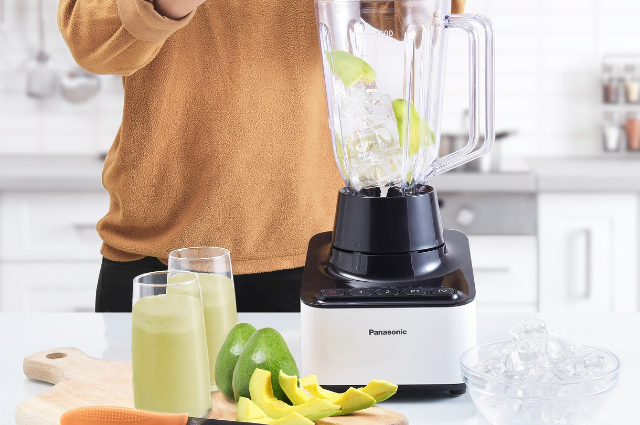
Everywhere you look now, in gyms, on social media, and even in casual conversations, people seem obsessed with protein. It has become the new standard for measuring someone's commitment to their health. Two scoops before the workout, one after, protein bars in the bag, protein pancakes for breakfast. The whole thing looks clean and disciplined from the outside, but once you look closely, you start noticing something no one talks about: this constant push for more protein is quietly hurting the stomach and overall digestion of many young people.
Take the story of a close friend of mine. He joined a fitness program last year and was told to take two scoops of whey protein daily. At first, he felt great stronger, more energetic. But soon, he started complaining about constant bloating, cramping, and strange gas. He brushed it off, thinking that was just starter effects. When things didn’t improve, he visited a gastroenterologist who explained that these side effects are extremely common with protein powder overuse, especially when someone ignores fibre and hydration.
His case is far from rare. Many gastroenterologists now warn that protein powders can trigger bloating, diarrhoea, constipation, and other gut issues. These problems come from the fact that many isolates and concentrates lack fibre, lack micronutrients, and deliver a concentrated nitrogen load that the gut has to break down. Some doctors even say that this heavy load strains the gut to a point where it becomes inflamed or overly sensitive.
High-protein diets also put extra pressure on the kidneys. When the body receives more protein than it can use, it must convert the extra into nitrogen waste, which then needs to be filtered out. That filtration process forces the kidneys to work harder than usual. Over long periods, this can lead to glomerular hyperfiltration and, in some cases, early signs of kidney stress. Medical reports have even shown healthy young people landing in kidney trouble after misusing protein powders for months.
Another issue is how high-protein diets often crowd out other important foods. Many people who want “clean gains” start replacing their fruits, vegetables, and whole grains with shakes and bars. Dietitians have been pointing out for years that this is one of the main reasons digestive issues appear. When fibre drops, the gut works harder. When hydration drops, digestion slows. When both happen together, stomach problems are basically guaranteed.
A recent review in a nutrition journal also explained how excess protein gets fermented by gut bacteria. During this fermentation, harmful by-products like ammonia, phenols, and indoles are produced. These aren’t just responsible for gas and discomfort; they can irritate the gut lining and contribute to inflammation. Over time, this kind of irritation can make digestion unpredictable and painful.
Another friend of mine had a rough experience with plant-based protein powder. She shifted to it because she was lactose-sensitive and wanted something gentler. But even then, she ended up with nausea, loose stools, and a strange heaviness in her stomach every time she drank her shake. The issue wasn’t the type of protein; her body was simply not handling the overload well.
The pressure behind all this is real. Fitness culture today glorifies high protein the same way earlier generations glorified thinness. Influencers repeatedly push the idea that more protein = more progress. For people who want to look or feel fit, stepping back from this culture feels like failure. That mindset is what keeps the cycle going: more shakes, more bars, more digestive problems, and more confusion about what’s actually happening inside the body.
Long-term risks don’t stop at digestion. Many health experts warn that consistently high protein intake can increase the risk of kidney stones, raise blood pressure, and disrupt metabolic balance. If protein powders become a meal replacement rather than just a supplement, the nutritional gaps eventually show up as fatigue, hormonal fluctuations, and gut irritation.
Still, protein itself isn’t the villain. The problem is the extreme version of it that has been normalised. Our bodies need protein for muscle repair, immunity, and daily function. We just don’t need it in excessive amounts. Most people can meet their needs with whole foods like lentils, eggs, nuts, dairy, chicken, fish, sprouts, and beans. When supplementation is necessary, it should be balanced with enough fibre, enough water, and enough natural foods to support digestion.
One of my friends made this switch recently. She reduced her whey intake, added more whole foods, and started drinking more water. She also paired her protein shake with fibre-rich snacks like fruit or roasted chana. Within a few weeks, her bloating reduced, her stomach felt lighter, and she didn’t feel dependent on her shaker bottle anymore.
Protein culture itself isn’t wrong; wanting to take care of your body is a good thing. But when the desire for muscle or fitness becomes an obsession, the imbalance starts showing. The body is not built to process massive protein loads every day. It needs a mix of nutrients, enough rest, and enough support from natural foods. When that balance is lost, you might gain muscle on the outside but weaken your system on the inside without even realising it.
References:
- https://www.hindustantimes.com
- https://health.economictimes.indiatimes.com
- https://www.medindia.net
- https://www.business-standard.com
- https://www.kidneyfund.org
- https://pmc.ncbi.nlm.nih.gov
- https://www.healthline.com
- https://edepot.wur.nl
